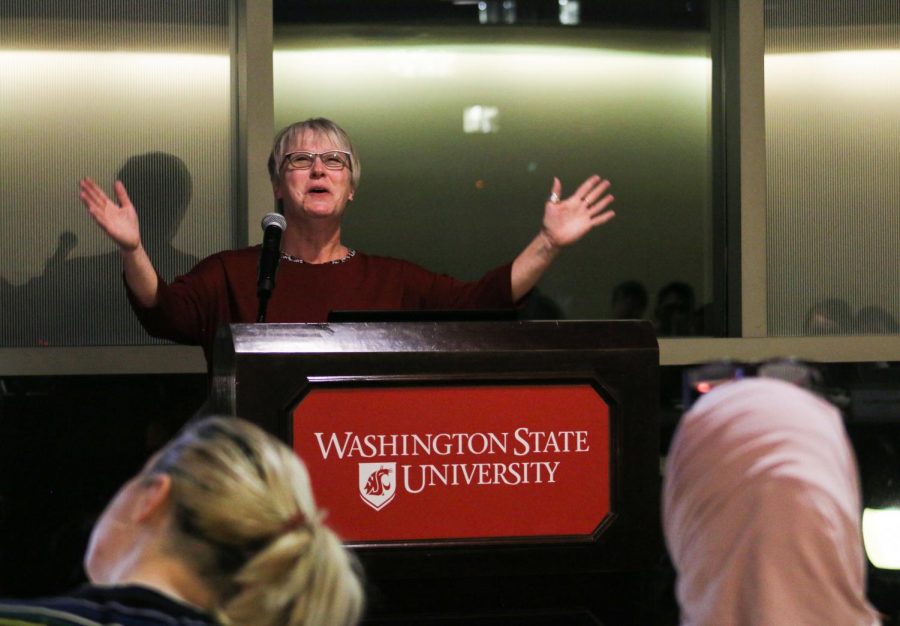Children’s center expands resources
Evening program uses tablet that translates multiple languages
Evening program uses tablet that translates multiple languages.
November 5, 2019
GPSA featured a speaker who discussed the new additions to the Washington State University Children Center’s evening program during Monday night’s meeting.
Director of WSUCC Heather MacDermott-Havey said the main goal of the evening program is to support graduate and professional students who also have children.
MacDermott-Havey said the evening program began using a tablet this year that can translate numerous different languages.
“It is really helping the other children communicate and build a healthy social connection with their peers and friends,” she said.
MacDermott-Havey said the entire program also serves as a lab school and provides high-quality education for the children, while also being a teaching institution for students.
“We have 60 to 70 student staff members who can come work with us in the different classrooms,” she said.
MacDermott-Havey welcomed GPSA members to consider what they could learn from young children while completing their studies.
“It is not just daycare or evening care, It is an opportunity for people to be successful to graduate and that’s what our goal is to provide that for parents,” she said. “It is a place for people to bring their children so they can study, have study groups or just simply study without their child,” she said.
MacDermott-Havey said evening care is offered from 5:30-9:30 p.m. Monday through Thursday.
“We provide a USDA meal for all the children who attend,” she said. “We do take into consideration religious preferences, food allergies and all cultural needs in selecting the food that we offer.”
She said the children at the center practice family-style dining.
“It is so unique to watch, no matter how many languages children speak, eating and playing are both universal things,” she said.
Director of GIESORC Matthew Jefferies informed GPSA members that WSU is working to be more welcoming toward members of the LGBTQ+ community.
“So far we have changed the WSU building standards to require all new construction and renovations to include a gender-inclusive bathroom somewhere in the facility,” he said. “Usually on the first floor where it is most accessible and logical.”
GPSA member Micheal Craven asked Jefferies what resources are available to make professors’ office spaces more welcoming for LGBTQ+ students.
Jefferies said small gestures such as hanging a flag and putting out stickers can make the space more welcoming.
He said GIESORC offers ally training, which would also be a good place to start.









